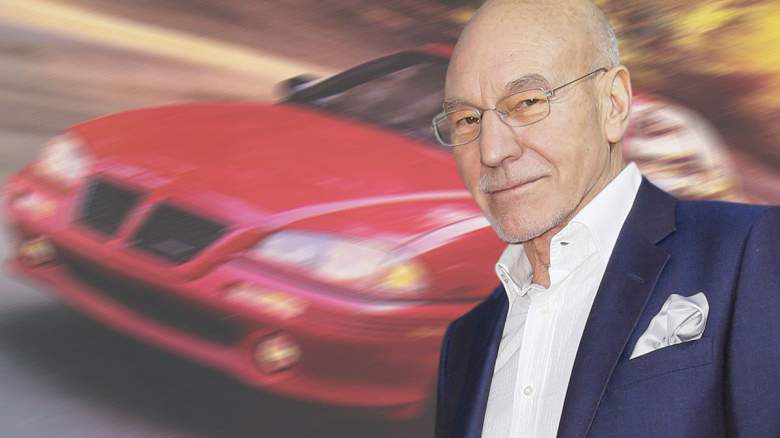
Getty / GM Patrick Stewart and Pontiac
In the world of entertainment, there are some actors who make a living on television, and the movies are never seen, only heard. Many of those “voice actors” have built entire careers by creating a unique voice (or voices) which audiences will pay to hear.
For example, as “Star Trek” is now home to three animated series — one which aired in the 1970s and two that currently stream on Paramount+ — fans have been able to feast their ears on some of the most well-known voice performers in the business. The list includes names like Fred Tatasciore, who supplies the voice for “Lieutenant Shaxs” on “Lower Decks,” and Dee Bradley Baker, who gives voice to “Murf” on “Star Trek: Prodigy.”
Both Tatasciore and Baker are industry veterans who have been involved in dozens of television shows, films, video games, and other projects.
Those two are certainly notable. But if Tatasciore or Baker were to bump into someone on the street, they might not be recognized. This is not the case for a few prominent stars from “Star Trek” who made names for themselves both in front of the camera and behind a microphone.
Leonard Nimoy
Most fans know about Leonard Nimoy’s singing career (and the hit “The Ballad of Bilbo Baggins”), but he was even more well known for his narration. Nimoy lent his voice to many projects, which Vulture magazine described as “soothing.” They also noted just a few of the many projects Nimoy worked on, which included working on the original “Transformers” film, the video game “Seaman,” and an introduction for the “Mugar Omni Theater” in Boston.
William Shatner
A voice that is just as memorable and iconic as Mr. Spock’s would have to be William Shatner. Thanks to his seemingly limitless energy, Shatner has appeared in hundreds of projects on television, in the movies, and with only his voice. Shatner’s list of audiobooks that are available on Audible.com is truly impressive. Most of those books were written by the Captain Kirk actor, but he does narrate a few written by others, including “Pinot Rocks.” Shatner has worked extensively on documentaries, including 1976’s “Universe.”
Patrick Stewart
Perhaps the most recognizable voice from the talented roster of “Star Trek” stars is Patrick Stewart. Thanks to his English accent and “authoritative voice and strong delivery,” Stewart is nearly as successful as a voice actor as he is in front of the camera. He’s worked on quite a few films, including “Chicken Little,” “The Nightmare Before Christmas,” and “The Prince of Egypt.” He’s also been heard as a voice on video games, not just as Captain Jean-Luc Picard. His voice is so beloved, that it even has its own Facebook page.
But something younger Trek fans might not know is that Stewart used to be the voice of the now-defunct automobile brand — Pontiac.
‘We Build Excitement’
In the early 1990s, Stewart was the official television narrator for Pontiac, which was the performance division of General Motors (GM). The brand was terminated by GM in 2009, which ended production of popular vehicles like the Pontiac Trans Am, Firebird, GTO, and others.
Before this happened, Pontiac was one of the best-selling brands in the United States, according to Investopedia. The brand was all about speed, performance, and excitement, as the brand’s catchphrase explained — “Pontiac: We Build Excitement.”
While he was starring on “The Next Generation,” Stewart lent his voice to Pontiac. GM and their advertising partners produced quite a few memorable ads with his voice. In 1990, he shared that the Pontiac Trans Port minivan had “dent-resistant body panels,” which must have seemed like space-age technology at the time. In 1991, Stewart gave details about the lease deal for the Pontiac Grand Am. He also described the “precisely detailed” displays of the Pontiac Bonneville SSE.
Stewart has since lent his voice to many other brands, including National Car Rental and Strongbow Hard Cider.
READ NEXT: Why William Shatner Objected to the Script of “Wrath of Khan”